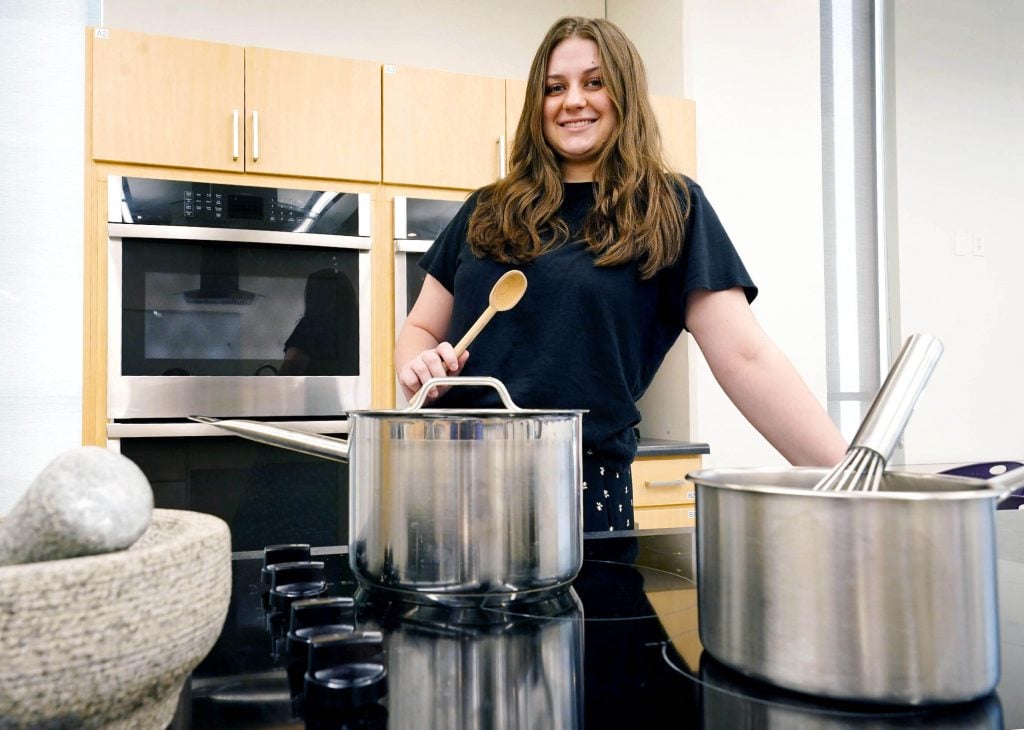
EDITOR'S NOTE: This story was originally published in the November 2024 issue of GCU Magazine, available in the purple bins on campus or digitally.
Photos by Ralph Freso
Maggie Miller has been a busy bee.
She plunged into a pilot produce prescription program in which patients with chronic illness and food insecurity can pick up organic produce biweekly from Desert Mission Food Bank.
She also made potato salad for patients using organic local ingredients.
And she did so while buzzing through a slew of internships at Banner Rehabilitation Hospital in Mesa, Arizona, Banner University Medical Center and Banner MD Anderson Cancer Center in Phoenix, and the Scottsdale Unified School District.
“I am both simultaneously the busiest I have ever been but also have the most free time I have ever had,” said Miller, a Grand Canyon University instructional assistant and graduate student in nutrition and dietetics, an online program she loves because of the flexibility it gives her.
Miller, who earned her bachelor’s degree at GCU, must churn out 1,000 hours of experiential learning, or learning by doing, to fulfill the requirements of the college’s accrediting body. Seven hundred of those hours must be in person.
Yet Miller is undaunted.
The same goes for GCU’s College of Natural Sciences, which created the graduate program. It is among a small percentage of accredited graduate programs in nutrition and dietetics that is offered fully online.
It is just one of the steps the college has taken when it comes to teaching science online – something notoriously hard to do considering the hands-on lab work required.
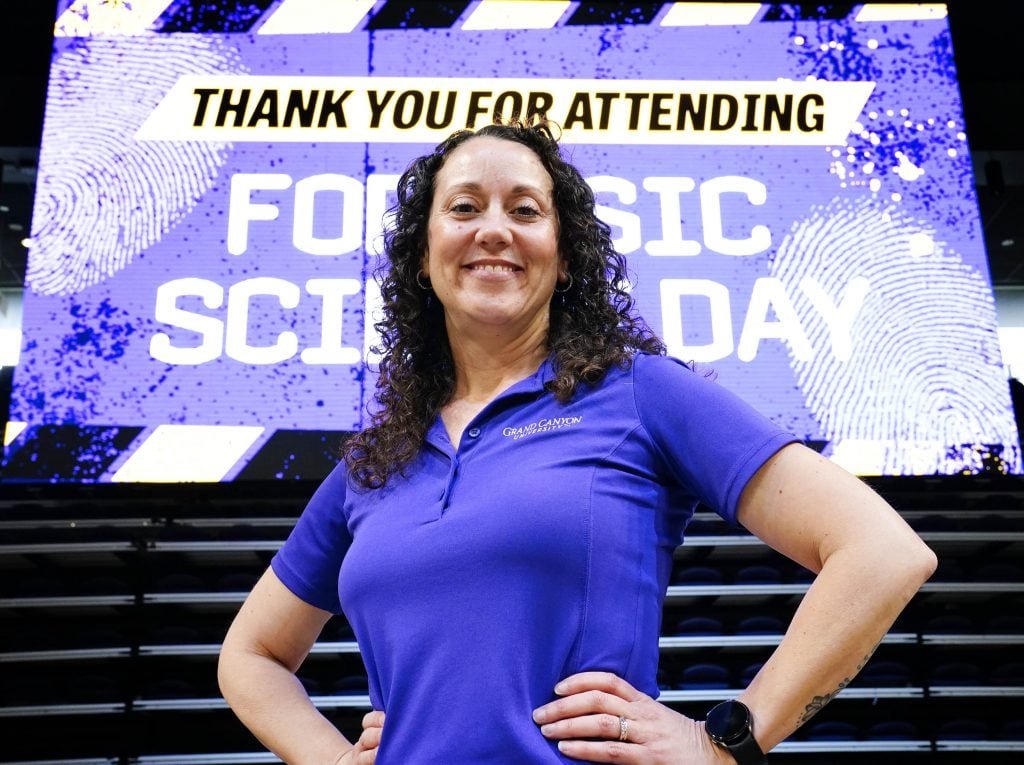
“The fact remains that the sciences are still hands-on experiences,” said Dr. Bina Vanmali, GCU assistant dean of science. “The biggest challenge we run into is, how do we give students authentic experiences?
“For the sciences, hands-on is necessary. That experience gives you the opportunity to take the ideas you’re learning about in lecture and test them in the lab … then apply them to real-world scenarios. You can’t do that as a thought experiment and get the same outcomes.”
But even online, students can get some of those hands-on experiences.
The nutrition and dietetics graduate program follows in the footsteps of the college's master of forensic science degree, launched in 2021. It paved the way for the online evolution of the sciences at GCU.
“We were really excited to be, we believe, the first (in the country) to offer a hands-on experience with an online master’s degree,” Vanmali said of the forensic science graduate program.
What made it so cutting edge was that students did lab work at home. GCU mailed them lab kits that included a microscope, reagents and other supplies.
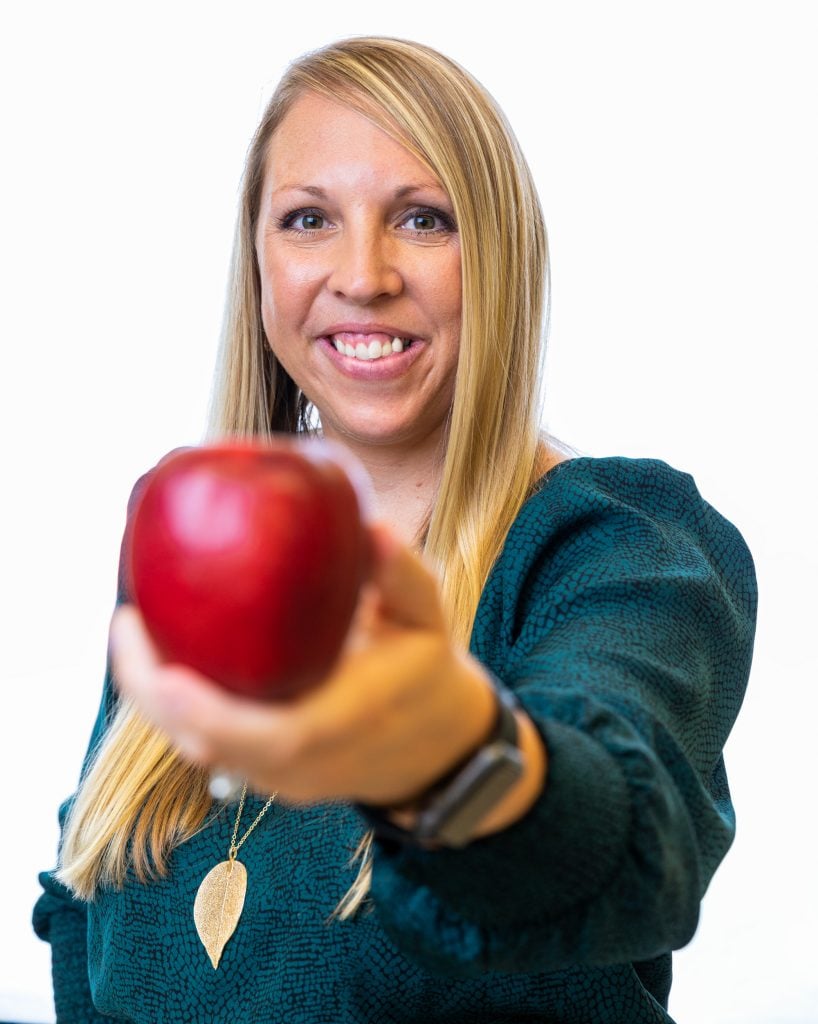
That same spirit of innovation buoys the master of nutrition and dietetics program, whose currently enrolled students come from 40 states. The program accepts 75 students a year. Courtney Baker, director of nutrition and dietetics, has heard of other programs that accept five.
Although the college doesn’t send students lab kits, it pioneers the program through experiential learning.
Students create videos, for example, in nutrition counseling. “They’ll counsel their mom, counsel their friend,” Baker said. “They’ll video it and then get feedback from faculty and peers based on their counseling skills.”
Students then fulfill the bulk of their 1,000-hour experiential learning requirements in person with a preceptor at a hospital or similar facility. They’ll practice their nutrition counseling skills face to face with someone or observe the professor.
The exercise science program also has been trailblazing in the realm of online learning, recently rolling out courses in exercise physiology and kinesiology – something faculty might not have done as quickly if not for the COVID-19 pandemic.
“Without realizing it, we were able to try things and say, ‘OK, this worked well and this didn’t,’” GCU exercise science professor Dr. Zach Zeigler said.
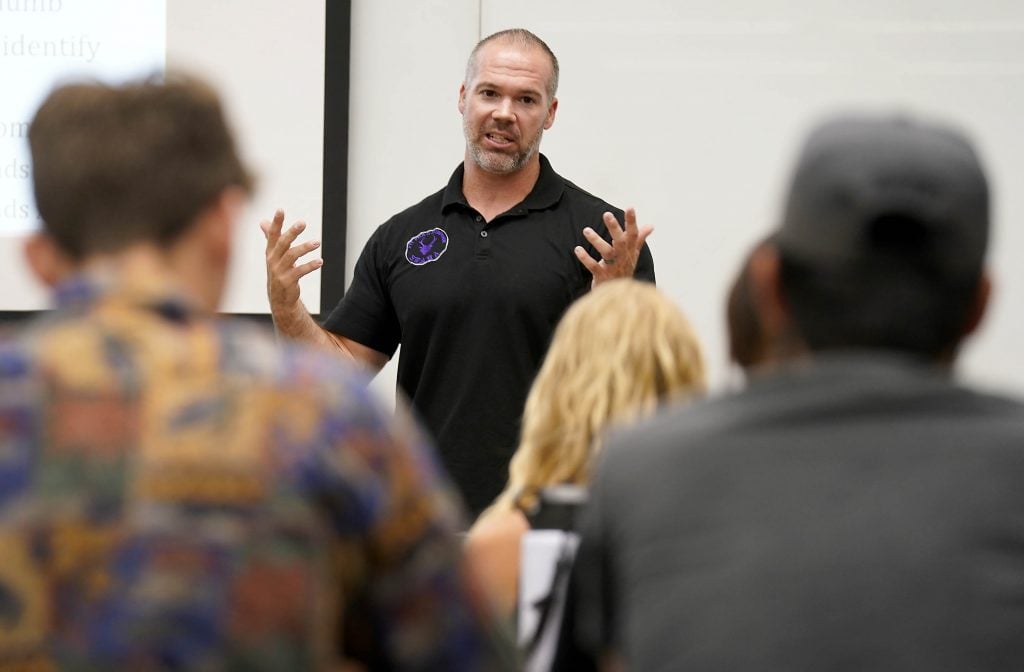
Like in the forensic science program, the college mails students lab kits with blood pressure cuffs, body fat calipers and the like. Students are asked to go to a local gym and pair with a partner – mom or dad, brother or sister – then measure and log their vitals.
Students also submit videos, such as teaching someone an activity or exercise. They give feedback on the video so their professor knows they know how to give feedback.
In another online exercise course, applied exercise science, students have to hit 100 experiential learning hours, such as working at a physical therapy clinic.
“We have 70 students in that class, and they just go across the Valley. They’re finding these internships, and that’s (a class that’s) completely online. Their hours, instead of in the classroom, are completely out in the field,” Zeigler said.
College of Natural Sciences Dean Dr. Mark Wooden emphasizes how GCU is taking a more holistic approach when it builds the courses.
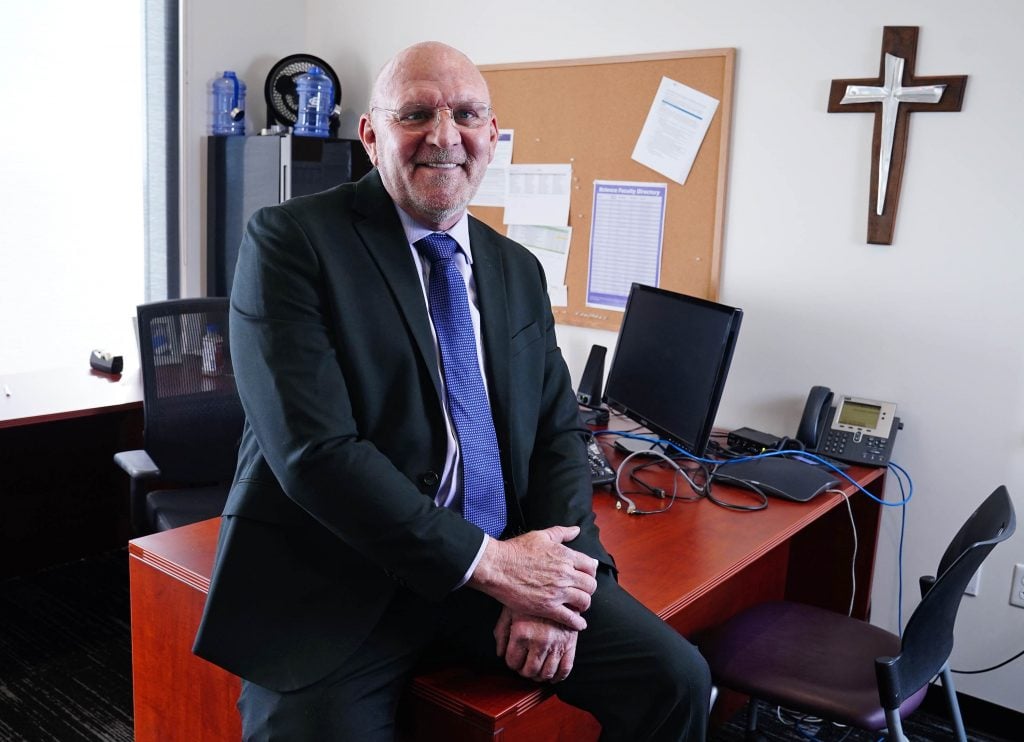
“We’re not the only school that’s putting courses online, but I think we put a lot more attention into it,” Wooden said.
“… We think about the knowledge, about the skills they have to have. We think about the co-curricular experiences they should have and all the support,” Wooden said about internships, bridge programs, online instructor office hours and academic support online via new science artificial intelligence chatbot Mira, to name a few.
“We think about all this when we build a program.”
Graduate programs aren’t the only strides the college is making in the online world.
Professors are upping their lecture video game. Those one-hour videos? They’re not resonating, so instructors are making them shorter.
And, Vanmali said, the college plans to launch several online undergraduate programs.
The bachelor’s in nutritional sciences, as well as forensic science and exercise science/pre-therapy emphasis are slated to go online, one of them as early as next year.
Like Maggie Miller, the college has been one busy bee.
***
Also from the November 2024 issue of GCU Magazine:



































































